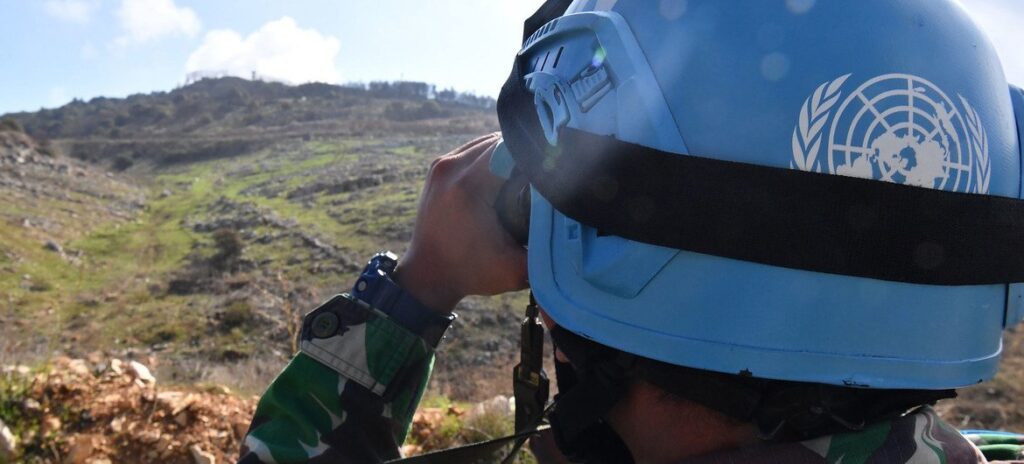Jean-Pierre Lacroix, UN Under-Secretary-General for Peacekeeping Operationsexpressed deep concern about the escalation in southern Lebanon and the consequences for civilians, and reiterated the need for a cessation of hostilities and negotiations to restore calm.
“UNIFIL Peacekeepers feel obliged to adhere to the mandate given to them by the peacekeeping force Security Counciland they feel an obligation to the people of southern Lebanon” he told journalists at UN headquarters in New York, referring to the UN interim force in Lebanon.
“The peacekeepers currently remain in position…Team UNIFIL remains united and committed.”
He added that the mission continues to work with partners “to do everything they can” to protect the population, provide temporary shelter to the affected population in recent weeks and support the delivery of humanitarian aid.
Essential mandate
The mission is mandated to confirm the withdrawal of Israeli forces from southern Lebanon and to assist the Lebanese government in restoring its authority in the area.
In 2006, the mandate was expanded to also oversee the cessation of hostilities in the aftermath of the war between Israel and Hezbollah, which largely controls the south.
It is also the only channel of communication between the Israeli and Lebanese forces.
From September 2, UNIFIL’s force consists of 10,058 peacekeepers from 50 troop contributing countries. There are also approximately 800 civilian personnel at the mission.
Safety first
Mr Lacroix also underlined that the safety of UN peacekeepers “remains a top priority.”
“In recent months, weeks and days, a number of measures have been taken to strengthen the protection of peacekeepers. But the safety and security of peacekeepers is a shared responsibility,” he said, emphasizing the obligation of all combatants to comply.
In response to a question about a request by the Israeli Defense Forces (IDF) to vacate some UNIFIL positions, including those very close to the Blue Line, Mr. Lacroix said the peacekeepers “currently remain in all their positions.”
“This is a decision we have taken after a thorough consideration of all elements, including the safety and security of our peacekeepers, but also the responsibility we have with regard to the mandate and the population,” he said, adding that the situation is under constant supervision.
Healthcare services affected
Meanwhile, the humanitarian situation on the ground remains volatile as civilians continue to flee areas in Lebanon while Israeli airstrikes continue to hit densely populated areas, including in the capital Beirut and its suburbs.
The hostilities have also taken their toll on the healthcare sector, with some 28 healthcare workers killed in the past 24 hours alone.
In southern Lebanon, 37 health facilities have been closed, while in Beirut three hospitals have been forced to fully evacuate staff and patients and another two have been partially evacuated, the UN World Health Organization said.WHO).
Healthcare workers have also not reported for duty due to ongoing airstrikes, severely limiting the provision of mass trauma management and continuity of healthcare.
“Health and humanitarian workers, including WHO staff, have done incredible work under very difficult and dangerous conditions, with limited supplies. And yet Healthcare is still under fire,” said Tedros Adhanom Ghebreyesus, Director-General of WHO.
“WHO calls on all partners to facilitate flights to deliver much-needed life-saving supplies to Lebanon,” he added.
© UNICEF/Dar Al Mussawir
Emergency aid is being stepped up
UN agencies have stepped up response efforts amid the worsening crisis.
The UN World Food Program (WFP), for example has expanded emergency food assistance to reach up to one million people affected by the current crisis. It supports vulnerable Syrian refugees and the most endangered Lebanese in Lebanon.
The Office of the UN High Commissioner for Refugees (UNHCR) have also stepped up efforts with their partners to help both Syrian and Lebanese families cross the border.
And with, women and children who suffer most from the consequencesthe UN Sexual and Reproductive Health Organization, UNFPAhas supported the creation of 17 safe spaces for women and girls across Lebanon.

